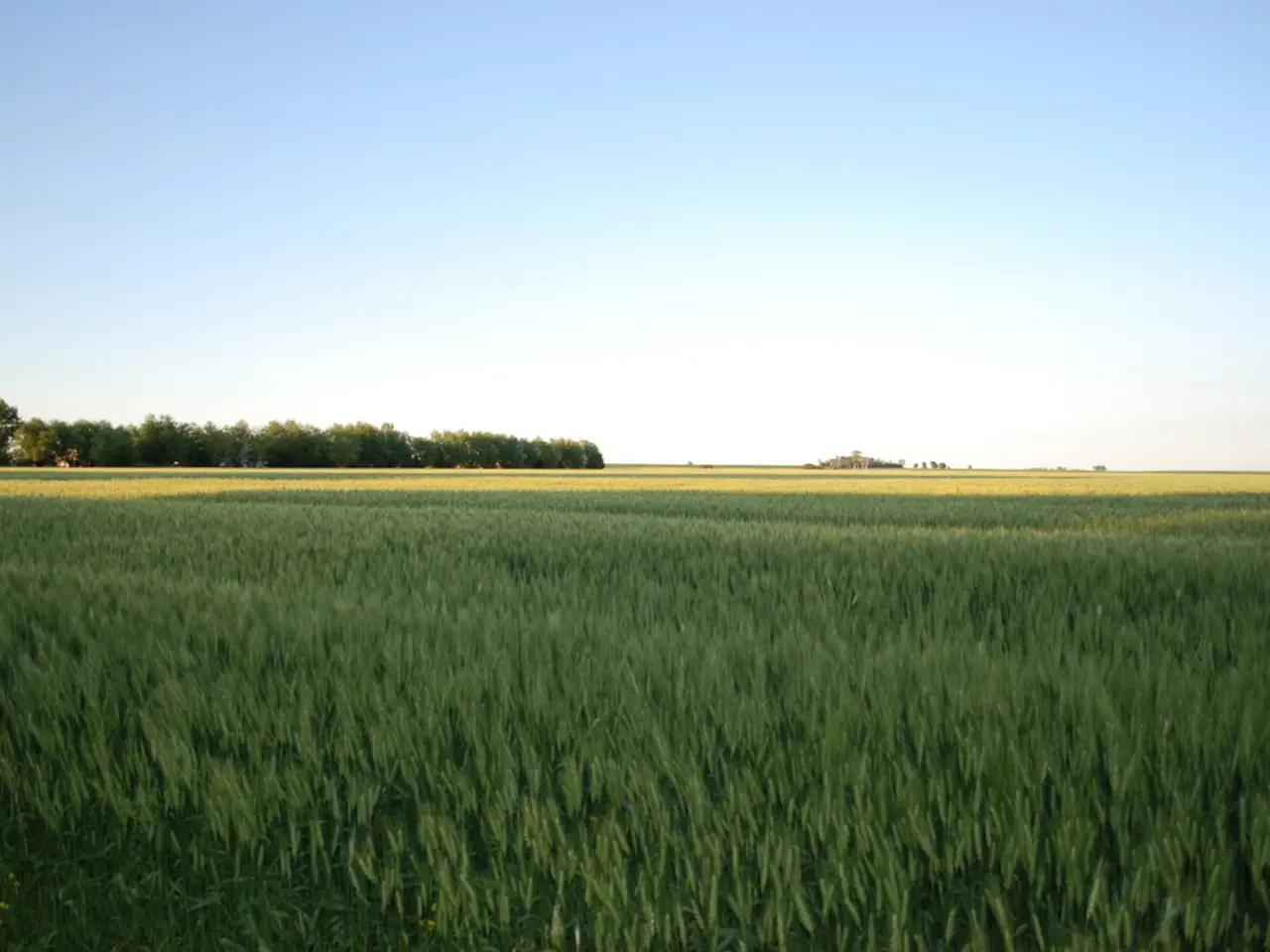Highlighted Feature: New Holland Farm, Islands of Orkney
In the remote archipelago of Orkney, farming is a way of life that blends harmoniously with the island's rich natural environment. The unique advantages of Orkney's farming landscape, coupled with a strong community spirit, have fostered a thriving agricultural sector.
Advantages in Orkney farming
Orkney's farming practices stand out due to a high uptake of agri-environment schemes, which protect biodiversity and support farming livelihoods. With about 9% participation compared to the national average of 4%, Orkney is a leader in conservation efforts [1].
The islands' favorable natural conditions, such as big skies and fast-moving tidal currents, make them an ideal location for aquaculture, complementing agricultural activities [2]. Additionally, the community in Orkney is actively engaged in policy discourse and local advice networks, enabling more adaptive and responsive farming practices [1][5].
Challenges faced by Orkney island farmers
Despite its advantages, farming on Orkney is not without its challenges. Proposed changes to agri-environment schemes and rural policies could increase costs, emissions, and diminish public benefit, potentially leading farmers to abandon these schemes or livestock farming altogether [1].
The administrative and regulatory burden, while primarily associated with fish farming consents, also affects farming on islands like Orkney, complicating operation and expansion [3]. Geographical isolation brings logistical challenges, such as transportation costs, vulnerability to market fluctuations, and dependence on local ecosystems, which can restrict scale and diversification potential [4].
One of the most significant challenges is the distance from markets, as there is no local abattoir, making direct marketing and remote location sales uneconomical [6].
Successful farming in Orkney
Despite these challenges, Orkney farmers have found innovative solutions to thrive. Mob grazing, with a long rest period, has improved grass production, nutritional quality, and biodiversity without the need for total reseed [7]. Careful livestock selection that suits the location and system is crucial for successful pasture-fed farming in challenging locations [8].
The sea salt adds nutrients to the grass but can stunt its growth in winter. Soil samples are analysed for calcium:magnesium ratio, and local shell sand and dolamitic limestone are used to balance the soil nutrients to improve soil structure [9].
The animals in Orkney's pasture-fed farming are healthier, and the farm is more economically viable. Orkney's unique wildlife, including the Orkney Vole, Hen Harriers, and a large population of Greylag Geese, benefit from farmers' efforts to encourage birdlife, cut silage in a bird-friendly manner, and maintain pockets of natural vegetation [10].
Overall, Orkney farming benefits from strong environmental stewardship and natural assets but must navigate evolving regulations and inherent island limitations that affect economic and ecological sustainability [1][2][5]. Despite these challenges, the farming sector in Orkney continues to thrive, thanks to its beautiful environment, strong community spirit, and innovative farming practices.
References: [1] RSPB. (2017). Orkney's Farming Futures. Available at: https://www.rspb.org.uk/our-work/our-science/projects/scotland/farming-futures/
[2] Orkney Islands Council. (2019). Orkney's Agriculture and Rural Economy. Available at: https://www.orkney.gov.uk/info/20135/agriculture_and_rural_economy/113/agriculture
[3] Scottish Government. (2018). Orkney's Marine Planning Partnership. Available at: https://www.gov.scot/publications/orkneys-marine-planning-partnership-2018/
[4] Orkney Food and Drink. (2020). Orkney's Food and Drink. Available at: https://www.orkneyfoodanddrink.co.uk/
[5] Scottish Agricultural College. (2017). Orkney's Farming Futures. Available at: https://www.sac.ac.uk/news/2017/05/08/orkneys-farming-futures
[6] Orkney.com. (2020). Orkney Food and Drink. Available at: https://www.orkney.com/food-drink/
[7] Orkney.com. (2020). Mob Grazing in Orkney. Available at: https://www.orkney.com/mob-grazing-orkney/
[8] Orkney.com. (2020). Orkney Farming. Available at: https://www.orkney.com/orkney-farming/
[9] Orkney.com. (2020). Orkney Soil Analysis. Available at: https://www.orkney.com/orkney-soil-analysis/
[10] RSPB. (2017). Orkney's Farming Futures. Available at: https://www.rspb.org.uk/our-work/our-science/projects/scotland/farming-futures/
The unique agri-environment schemes in Orkney promote biodiversity and support a sustainable farming lifestyle, contributing to the home-and-garden sector's emphasis on preservation and eco-friendly practices. The island's focus on community-led advice networks and collaborative farming methods reflects the trend of blending farming practices with the preservation of Orkney's natural beauty and wildlife.




